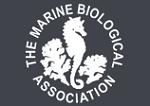APHOTOMARINE
An educational resource dedicated mainly to the photography
and diversity of marine life that can be found in coastal waters
and intertidal areas of Great Britain and Ireland by David Fenwick.
Pollicipes pollicipes
- staged habitat shot 1
Gooseneck barnacle
Pollicipes pollicipes
- close-up of plates 1
Gooseneck barnacle
Pollicipes pollicipes
- close-up of plates 2
Gooseneck barnacle
Pollicipes pollicipes
- close-up of plates 3
Gooseneck barnacle
Pollicipes pollicipes
- juvenile barnacle 1
Gooseneck barnacle
Pollicipes pollicipes
- 1.0mm juvenile barnacle 1
Gooseneck barnacle
Pollicipes pollicipes
- 1-2.0mm juvenile barnacles 1
Gooseneck barnacle
Pollicipes pollicipes
- group of mature barnacles 1
Gooseneck barnacle
Pollicipes pollicipes
- group of mature barnacles 2
All specimens in the images above above were kindly donated by The Fish Society, the UK's premier mail order and online fishmonger.
In the UK, Pollicipes pollicipes, is a rare species and only occurs in a handful of places in the extreme west of Cornwall. Pollicipes pollicipes occurs on the lowershore in highly exposed locations, usually at the foot of high cliffs.
I am not adding the locations in West Cornwall here, the sites where the species occurs are dangerous and I've no desire to put people at risk.
The Gooseneck barnacle has for many years been regarded a delicacy on the continent and it is becoming increasingly popular with restaurateurs in the UK. The species is sustainably sourced in similar extreme habitats, by hand, at the foot of cliffs in France and Spain.
More information can be found on the The Fish Society page dedicated to the Gooseneck barnacle.
It is hoped that with the assistance of The Fish Society many more people will be able to recognize this rare species, and increase our knowledge of it in Cornwall.
APHOTOMARINE supports open source data recording and sharing for the benefit of wildlife, recorders, research, science and education. The project recommends the following websites and works with the following bodies and organisations.
The Marine Biological Association or MBA, based in Plymouth, is one of the world’s longest-running societies dedicated to promoting research into our oceans and the life they support. Since 1884 the MBA has been providing a unified, clear, independent voice on behalf of the marine biological community.It has a growing membership in over 40 countries.
The National Biodiversity Network or NBN is a charity that supports open source data sharing and recording supporting conservation, science and education. "Why do recorders need open source?". Simply because it supports the core values of wildlife recording and the free use of records and data over a very wide network that includes partners like the Natural History Museum.
The taxonomy used here is based on that of the following database, which is also used by the MBA, NHM and the NBN.
The World Register of Marine Species or WoRMS.

